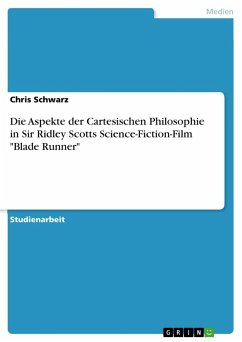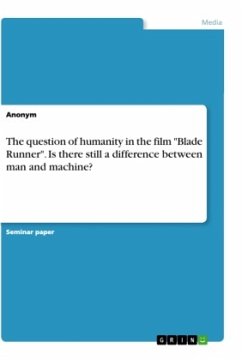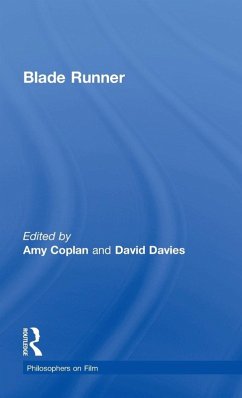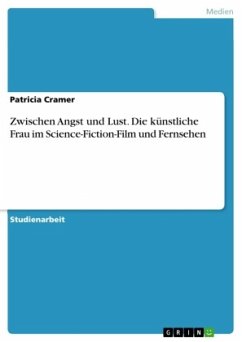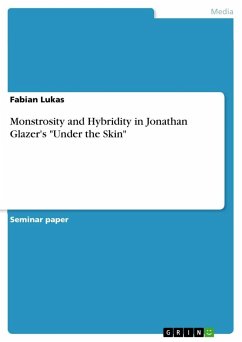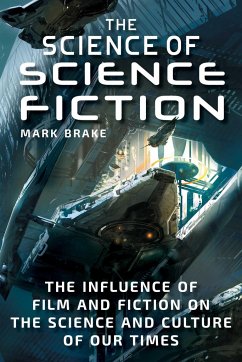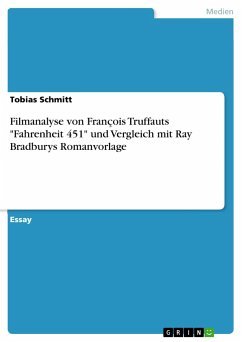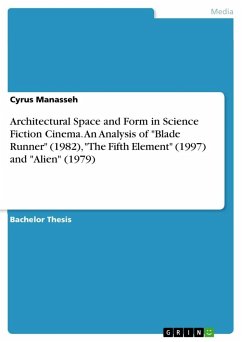
Architectural Space and Form in Science Fiction Cinema. An Analysis of "Blade Runner" (1982), "The Fifth Element" (1997) and "Alien" (1979)

PAYBACK Punkte
0 °P sammeln!
Bachelor Thesis from the year 2000 in the subject Film Science, grade: 2.1, University of Reading (Dept. of Film/Architecture), course: BA Hons. Film and Drama/ Art and Architecture, language: English, abstract: Architectural space and form in Science Fiction Cinema often mirrors the identity of the individual occupying that space on the screen. However, in such films, it does more than just create certain ways of delineating (and connoting) an environment which parallels the characters' position within an area guaranteeing and legitimizing their need to be there. Architectural space in Scienc...
Bachelor Thesis from the year 2000 in the subject Film Science, grade: 2.1, University of Reading (Dept. of Film/Architecture), course: BA Hons. Film and Drama/ Art and Architecture, language: English, abstract: Architectural space and form in Science Fiction Cinema often mirrors the identity of the individual occupying that space on the screen. However, in such films, it does more than just create certain ways of delineating (and connoting) an environment which parallels the characters' position within an area guaranteeing and legitimizing their need to be there. Architectural space in Science Fiction cinema is also a space that the audience is invited and allowed to travel through - to participate, to partake in. The audience finds their way through the space, and therefore, are forced to relate and identify with the space created by the architecture during the viewing of the film. This identification process by the audience is central to a proper and legitimate understanding of the film. In this dissertation, I have chosen to analyse three films - all of them Science Fiction. My reason for choosing them was that I was intent upon finding some of the most interesting, thought provoking and effective ways architecture has been used to activate a response within viewers of film: a response, which is entirely justifiable, and extends to an unquestionable belief in the validity of the story taking place on the screen. All three of the films chosen within this study raise specific issues in relation to the significance of 'architectural space and form in Science Fiction cinema'.




